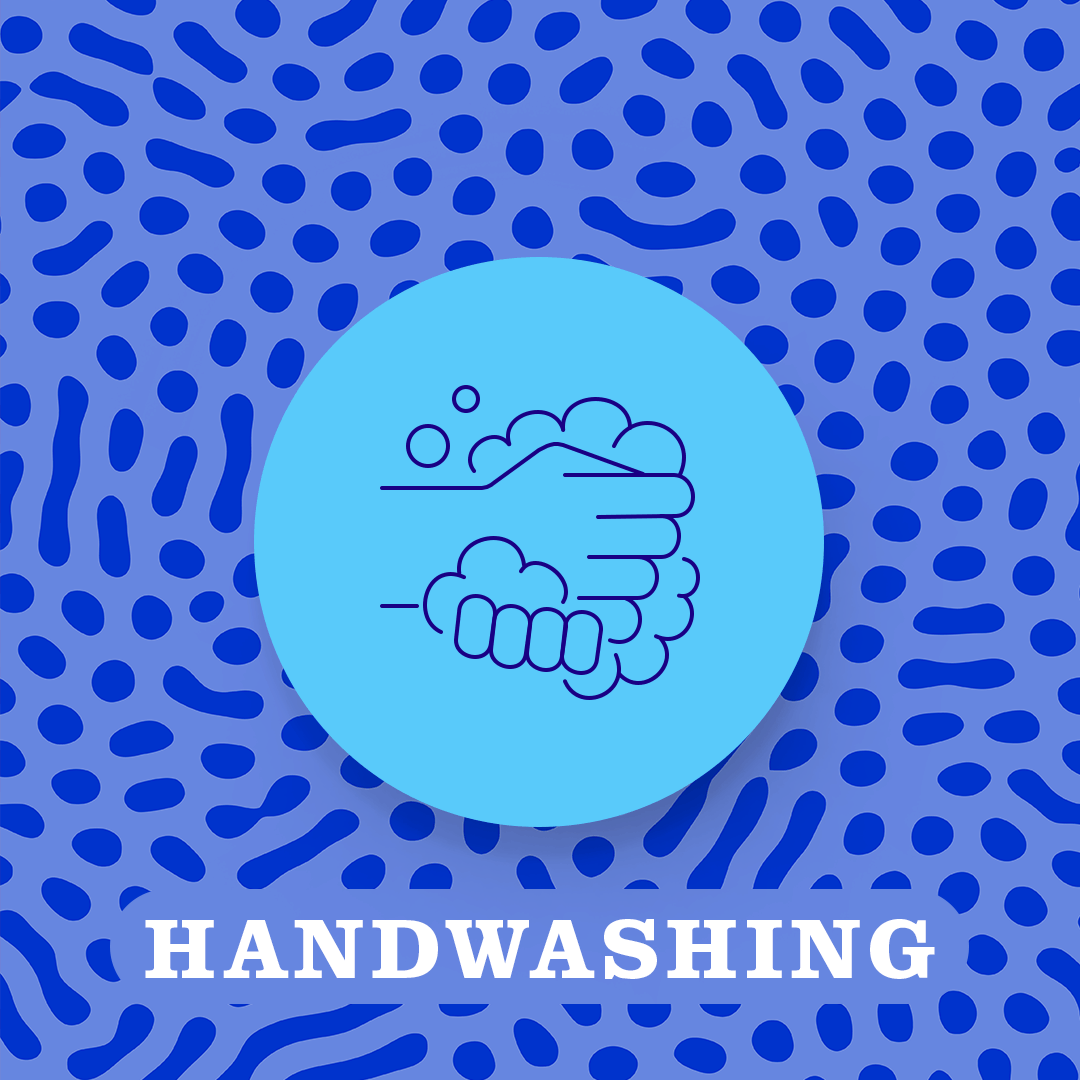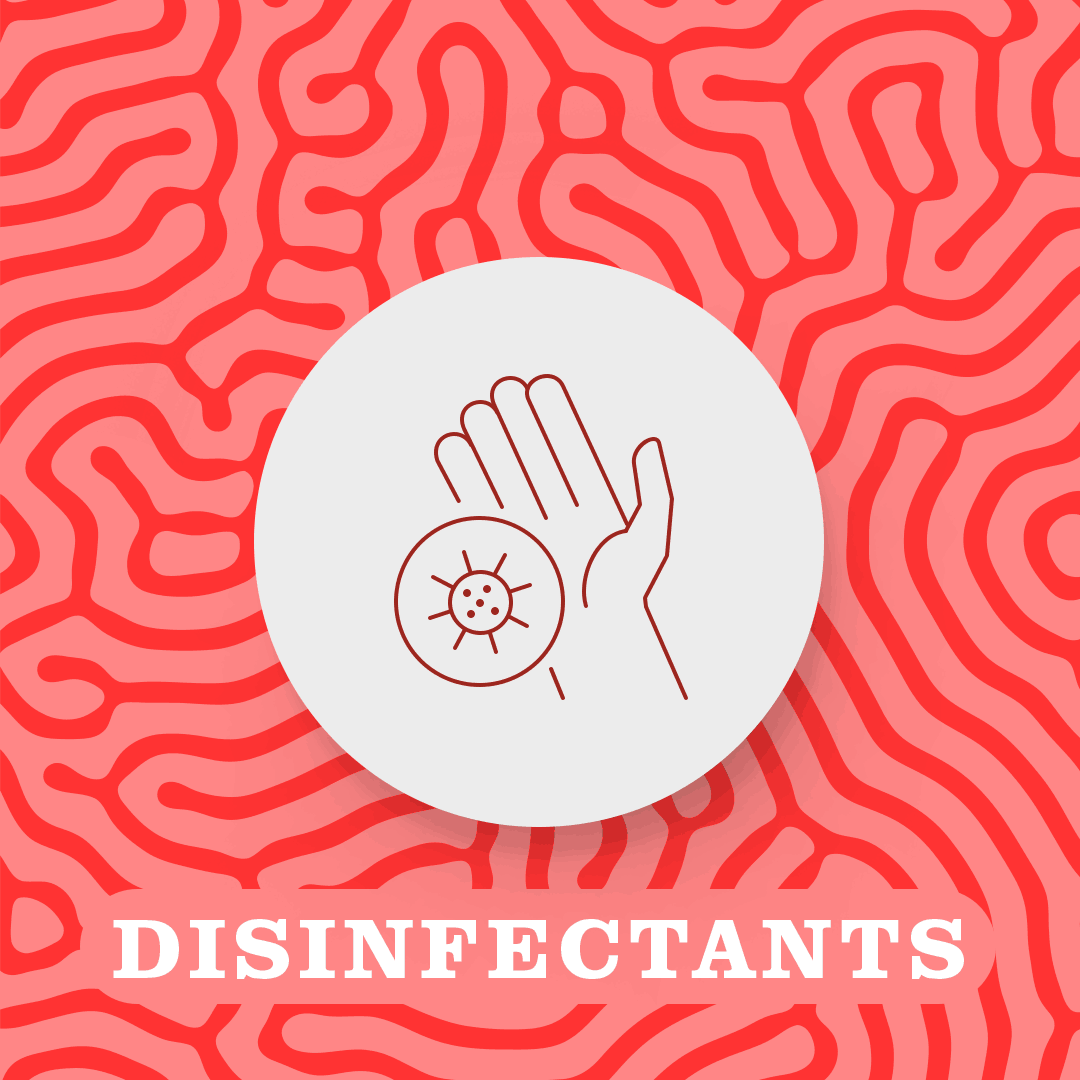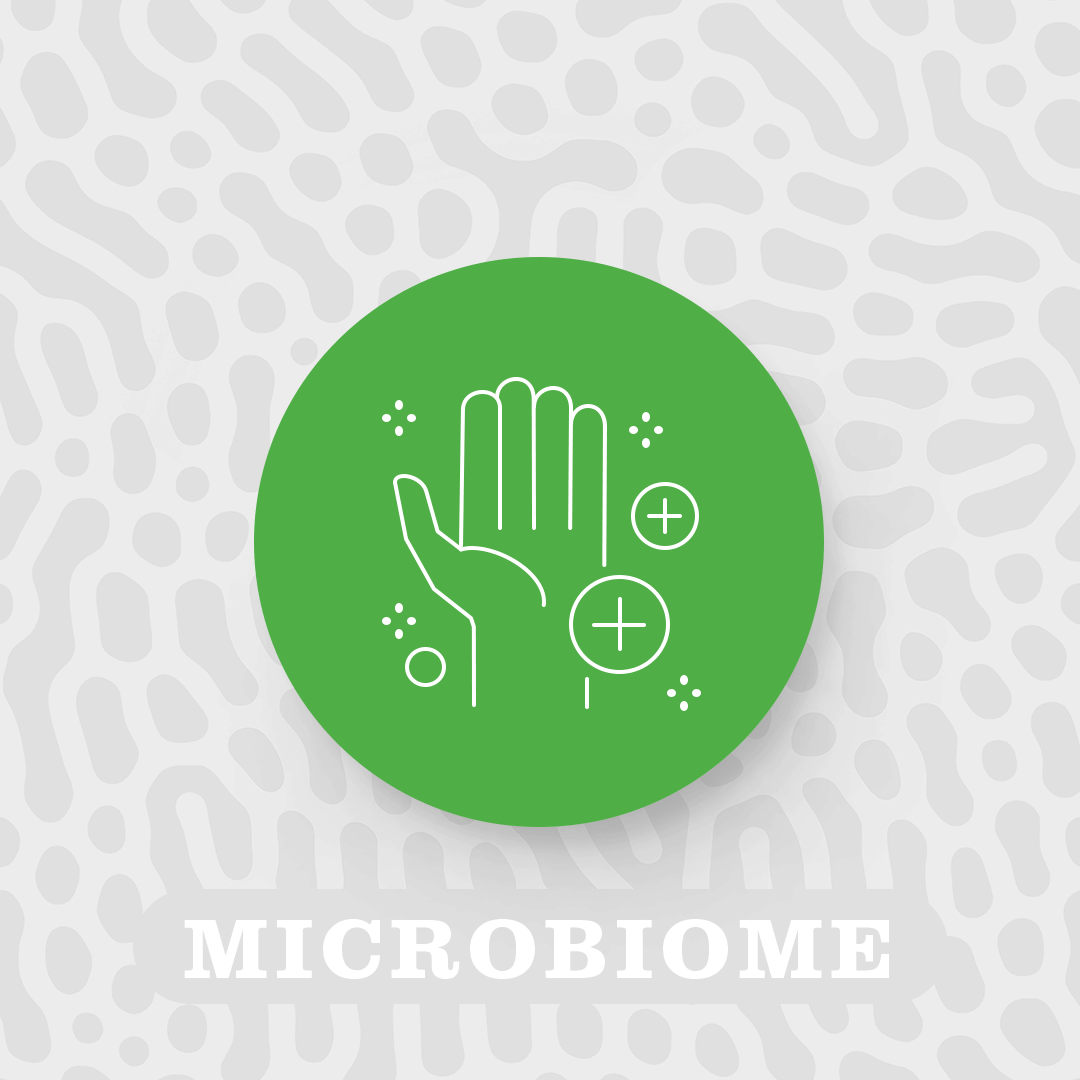To quote English singer, Joe Cocker: “The best things in life are the simple things”. Washing your hands is probably the simplest – but nevertheless effective – way to locally manipulate the human skin microbiome, with direct benefits for human health.
For instance, according to the German Federal Office for Health Education [1], just washing your hands thoroughly with soap reduces the risk of catching diarrhea by approximately 50%. It is no wonder, then, that in times of the coronavirus crisis, hand washing is one of the most important strategies everyone can apply to protect themselves and others [2].
Compared to other parts of the human body, human hands are characterized by relatively low microbial cell numbers (~ 102 to 103 per cm2, i.e. ~ 1000 times fewer than armpit or forehead), but also by an impressive microbial diversity. The hand microbiota of men and women have significant differences: female hands showed approximately a 15% higher diversity of bacteria and, among others, higher shares of fecal bacteria (Enterobacteriales) [3]. (According to my wife, this is because men only rarely clean the toilets at home or change a baby´s diaper…)
It is estimated that up to 80% of all infectious diseases are transmitted via the hands [4]. Yet, a recent report shows some astonishingly lax hygiene standards after observing the behavior of 1,000 people in public toilets. 11% of all men and still 3% of all women did not wash their hands at all after visiting a toilet. And while 82% of all women washed their hands with water and soap, only 51% of all men did so [5].
Clearly, these numbers need to be improved for the sake of public health – now more than ever. So, we have debunked some myths around hand hygiene.
How should I wash my hands?
Remove all jewelry and wash your hands for 20-30 seconds with warm (not hot!) water and soap. Liquid soap, ideally from an automatic dispenser, is better than a bar of soap, which might get contaminated by microorganisms with time. If you have no clock: 30 seconds is the time you need to sing ‘Happy Birthday’ twice.
Don´t forget to wash between your fingers, under your nails and around your wrists.
Washing your hands is probably the simplest – but nevertheless effective – way to locally manipulate the human skin microbiome, with direct benefits for human health.
Washing with soap is better than washing without soap but washing with water only is better than not washing at all [6].
 After washing, dry your hands, ideally with a disposable paper towel or a (fresh) textile towel. Drying by air blows microbes into the air, from where they might get inhaled, which should be avoided.
After washing, dry your hands, ideally with a disposable paper towel or a (fresh) textile towel. Drying by air blows microbes into the air, from where they might get inhaled, which should be avoided.
If you have to wash your hands very often, regularly use a nurturing hand cream afterwards. Dry, flaky skin facilitates microbial adhesion and skin lesions represent gateways for microbial infections. In this case, using modern hand disinfectants instead of soap is also advisable, because they contain moisturizing agents.
When should I wash my hands?
Notably, it is not important how often per day you wash your hands, but when you do it. If you stay in bed the whole day you might not need to wash them at all. In accordance with the German Federal Office for Health Education [1] it is reasonable to wash your hands….
Before: eating; cooking; using cosmetics or drugs; contact with ill people
After: returning home; using the toilet or changing diapers; cleaning the litter box; sneezing, coughing etc.; taking the trash out; cooking; contact with animals or ill people.
Most importantly, and pragmatically, it is important not to touch your face with an unclean hand – or an unclean glove!
Should I generally avoid shaking hands?
In view of the central role that hands and hand contact play for human life and communication, I would say: no! However, as we encounter unusual times, unusual etiquette is accepted, when social distance might save lives. And many different alternatives to a germ-laden handshake are available, such as elbow bumping or the Namaste gesture.
It is estimated that up to 80% of all infectious diseases are transmitted via the hands.
What about hand disinfectants?
 Hand disinfection plays a crucial role for hygiene and health protection in all clinical environments. However, and again in accordance with the German Federal Office for Health Education [1], in the domestic area hand disinfection is only indicated when a family member is actually ill. Then, the use of disinfectants can help to break infection chains and protect the other family members. Vice versa, disinfectants can help to protect immunocompromised persons (pregnant, elderly, freshly operated chronically ill) from infections at home. However, to the best of my knowledge, there is no study that has ever shown that the domestic use of hand disinfectants protects healthy people any better than the correct use of soap and water. Notably, even in the case of coronavirus contaminations, soap is regarded as a perfect antiviral agent, as it easily destroys the virus envelope, which consists of fat. Without this envelope the virus is not infective anymore [7]. Admittedly, if water and soap are not available, for example during longer travels, hand disinfectants should be used.
Hand disinfection plays a crucial role for hygiene and health protection in all clinical environments. However, and again in accordance with the German Federal Office for Health Education [1], in the domestic area hand disinfection is only indicated when a family member is actually ill. Then, the use of disinfectants can help to break infection chains and protect the other family members. Vice versa, disinfectants can help to protect immunocompromised persons (pregnant, elderly, freshly operated chronically ill) from infections at home. However, to the best of my knowledge, there is no study that has ever shown that the domestic use of hand disinfectants protects healthy people any better than the correct use of soap and water. Notably, even in the case of coronavirus contaminations, soap is regarded as a perfect antiviral agent, as it easily destroys the virus envelope, which consists of fat. Without this envelope the virus is not infective anymore [7]. Admittedly, if water and soap are not available, for example during longer travels, hand disinfectants should be used.
How does hand washing impact my microbiome?
 Interestingly, little is known about the long-term effect of hand washing and / or hand disinfection of the microbiome of human hands. Even less is known about the role the hand microbiome plays for the rest of the human microbiome.
Interestingly, little is known about the long-term effect of hand washing and / or hand disinfection of the microbiome of human hands. Even less is known about the role the hand microbiome plays for the rest of the human microbiome.
Clearly, exaggerated hand washing and / or disinfection, such as instances of a compulsion to wash, is bad for skin health and should be avoided. However, reasonable hand hygiene should not disturb the hand microbiome: pathogen removal and inactivation clearly represent the more important health benefit. In addition, recent research suggests that even the regular application of alcohol-based hand rub has only little effect on the (non-pathogenic) hand skin microbiome, which obviously has a high regeneration potential [8].
Now that you have all of the information you need on hand washing, why not read about foot odor? Find more content in our Content Hub.
[1] https://www.infektionsschutz.de/haendewaschen/[2]https://www.infektionsschutz.de/coronavirus/[3] https://www.aerzteblatt.de/nachrichten/91617/www.hochschule-heidelberg.de[4] http://www.bccdc.ca/health-info/prevention-public-health/hand-hygiene[5] Fierer N et al. (2008). The influence of sex, handedness, and washing on the diversity of hand surface bacteria. Proc Natl Acad Sci U S A. 105(46):17994-9. doi:[6] Burton M et al. (2011). The effect of handwashing with water or soap on bacterial contamination of hands. Int J Environ Res Public Health. 8(1):97-104. doi: 10.3390/ijerph8010097[7] https://www.nationalgeographic.com/science/2020/03/why-soap-preferable-bleach-fight-against-coronavirus/[8] Mukherjee PK et al. (2018). Effect of alcohol-based hand rub on hand microbiome and hand skin health in hospitalized adult stem cell transplant patients: A pilot study. J Am Acad Dermatol. 78(6):1218-1221.e5. doi: 10.1016/j.jaad.2017.11.046